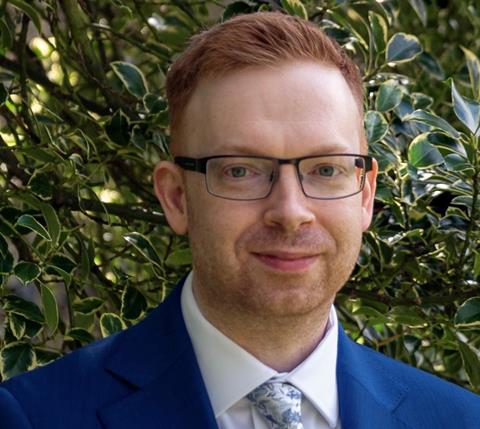Head of probate at Wolsey Probate, Anglia Research’s in-house legal team, Ipswich
I knew in high school that I wanted to be a lawyer. I went to a state comprehensive and had no connections or family in the legal profession, so it was quite ambitious to set a goal of going to law school. With determination and hard work, I knew I could make it happen.

I went to law school at King’s College London and studied in Belgium for a year. At that time l watched a TV show about finding missing heirs that sparked an interest in me to specialise in probate law. During my training contract, I did a seat in wills and probate.
I qualified with a firm in Norwich as a private client lawyer and practised this specialism. As an in-house lawyer, my focus is now almost exclusively on intestacy cases after next of kin are traced by expert probate genealogists.
I joined Wolsey Probate as head of department last year, heading up Anglia Research’s legal team. I work alongside case managers who are experts in probate genealogy. When I’m instructed by someone entitled to inherit under the intestacy rules, I deal with the administration of the estate. Frequently, the assets are not known at all, so I conduct a ‘treasure hunt’ to find them.
Sometimes this is easier said than done and it is hugely satisfying to locate missing assets! Plenty of detective-like work is involved, as you can take nothing for granted in probate genealogy: birth, marriage and death certificates often contain errors.
As head of department, I coach and mentor my team, which is very rewarding. I enjoy the managerial side of my role. I was delighted and proud that Wolsey Probate were finalists for an in-house award at the 2024 British Legal Awards. I am also the go-to in-house counsel for case managers who need to consult about points of law and legal strategies.
'Probate fraud is sadly too common. I believe training and investment in the probate registry to identify probate fraud and financial abuse of vulnerable persons is of great importance'
The Law Commission recently published a report on wills reform. I was pleased to see that there are proposals for those aged 16-17 to be able to make wills. Irrespective of their wealth, many young people will inevitably have strong views about to whom their assets and belongings should be passed if they die.
The law relating to when estate assets searches are carried out needs to be tightened up – sometimes financial institutions just don’t engage with them. This runs the risk of an account in the deceased person's name being left unidentified. Even if a search is speculative and made to a number of financial institutions, they should be legally bound to search for and report on the existence of a deceased person’s account within a reasonable time frame if the appropriate personal representative asks. There are other ways to find accounts, but the risk of accounts not being found is simply unacceptable.
Probate fraud is sadly too common. I believe training and investment in the probate registry to identify probate fraud and financial abuse of vulnerable persons is of great importance.
The limit for the release of funds by a financial institution in intestacy cases should also be set at a fixed threshold, say £5,000. This would reduce the risk of a financial institution releasing huge sums to the wrong person, without a personal representative going through the legal process of obtaining a grant. This may also encourage some to take expert probate genealogy advice when applying for letters of administration, which they may not do otherwise.
The most common misconception I come across concerning the administration of estates is that all of the relatives inherit in exactly the same proportions. That’s not necessarily the case: it depends on who inherits under the respective bloodlines. Probate genealogy guidance should always be sought. Family trees can be large – many stretch across the length of my office… and beyond!
Outside work, I have an interest in family history. I am also interested in health, fitness and self-development. I do enjoy a good quiz and puzzle – my favourite TV quiz show is The 1% Club and my favourite puzzle is Connections by the New York Times.































No comments yet